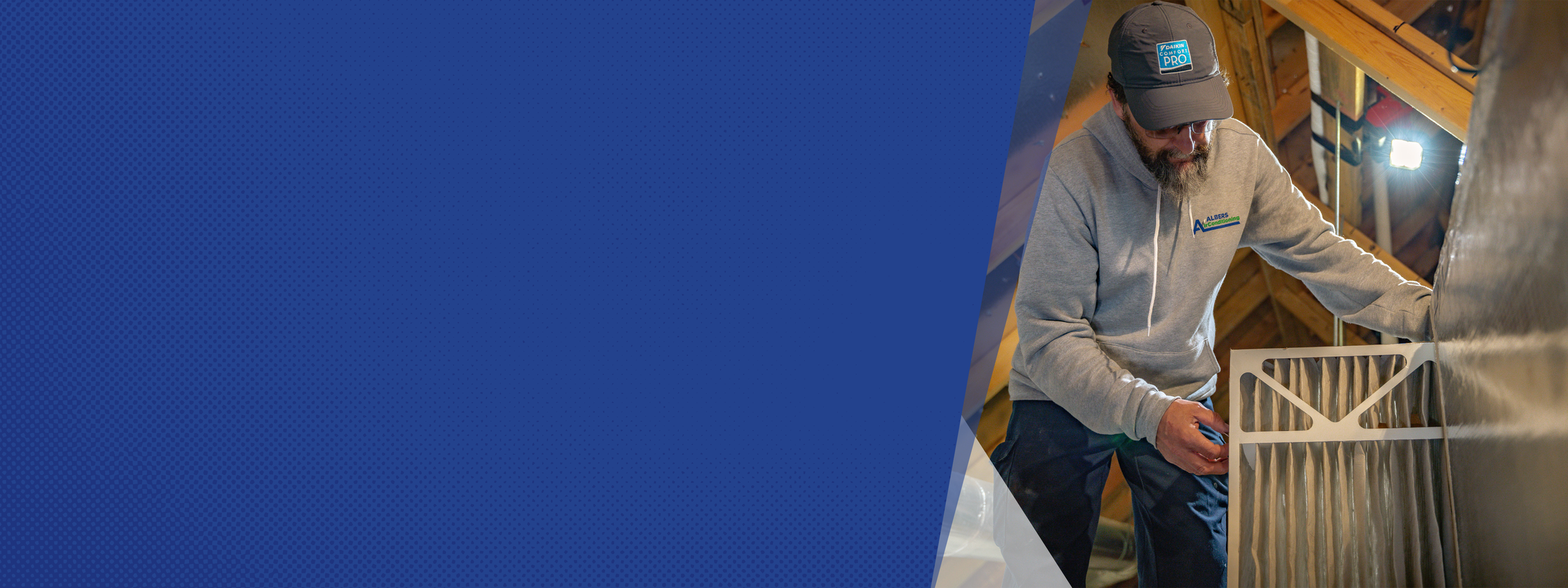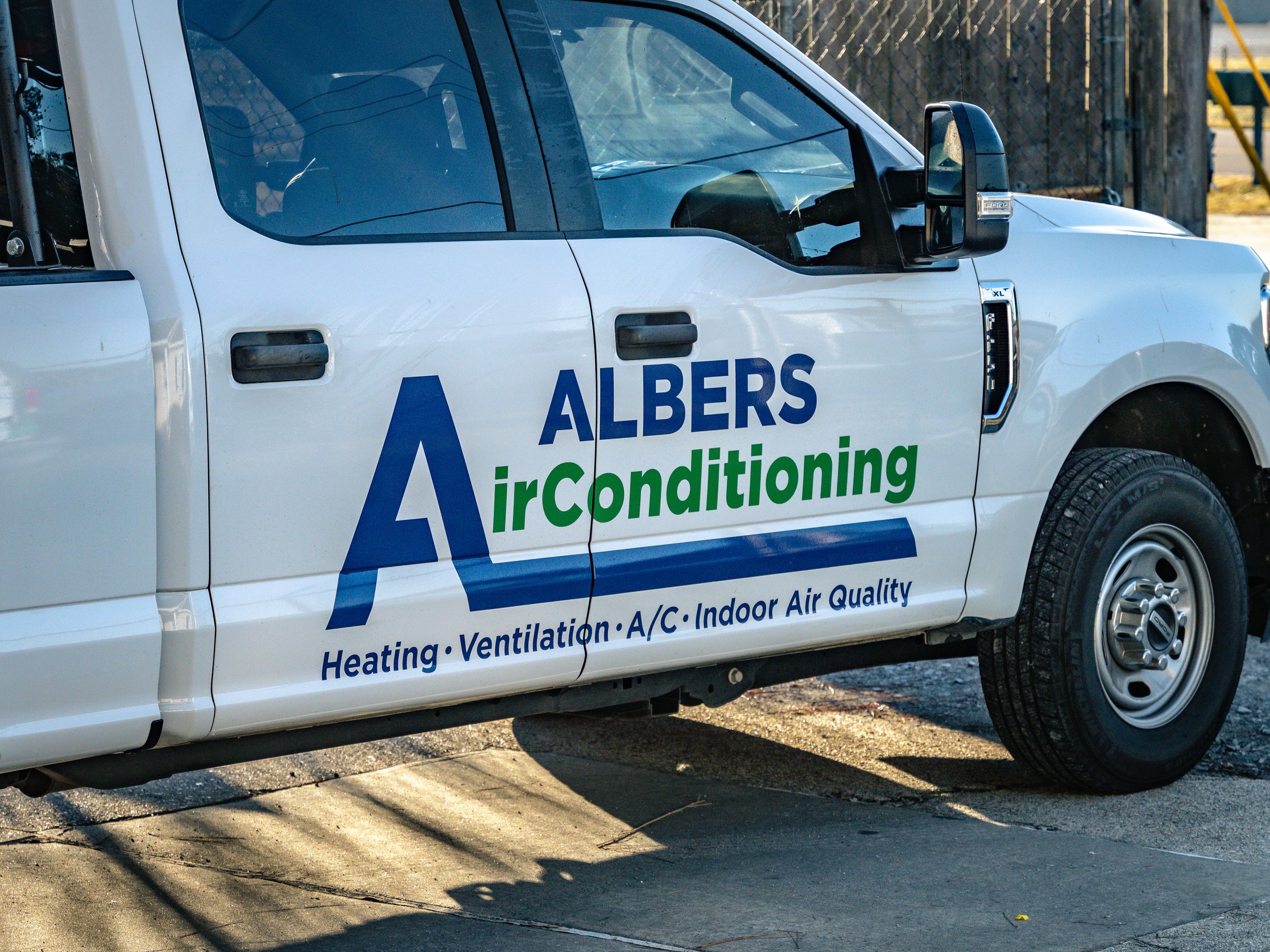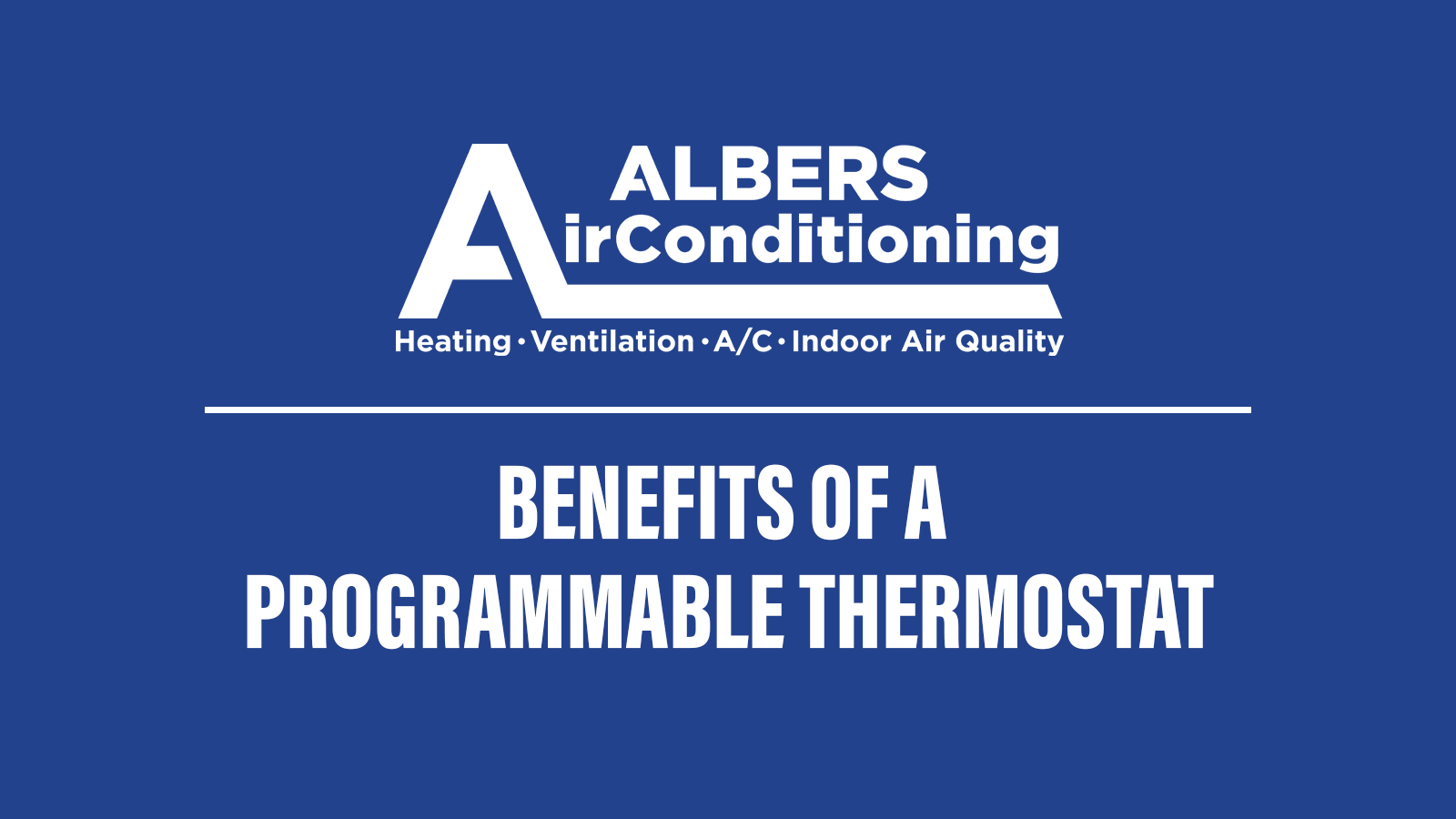
Indoor Air Quality
FAMILY OWNED & CUSTOMER TRUSTED SINCE 1989
UPFRONT PRICING
ON-TIME ARRIVAL
LICENSED & INSURED
Air Quality Services in Mandeville, Covington, Abita Springs, Madisonville, Hammond, and Ponchatoula, and Slidell
Many Mandeville and Covington residents don’t know it, but the air quality in their homes is often more polluted than the air outside. Call Albers Air Conditioning to find out how to get healthier indoor air.
When you need a reliable indoor air quality company, look no further than Albers Air Conditioning in Slidell. We’ve served the residents here for over 30 years and provide a 100% satisfaction guarantee on all of our work. Contact us today for a consultation with one of our highly-trained technicians.
Look to our specialists for the following services:
How Dirty Is Your Indoor Air?
Most people don’t think that the air in their home is more polluted than the air outside, but it’s often the case. While most people think of factory and vehicle emissions as air pollution, most don’t consider pet dander, dust mites, allergens, and bacteria. The fact, however, is that indoor air pollution has significant negative health impacts on many Americans.
So, what makes your indoor air so dirty?
PETS: We get that everyone loves their pets; they’re just as much part of the family as our kids. However, pets come with issues, and one of them is their fur. When pets shed, their fur can work its way into your indoor air supply, which can impact your health.
COOKING: It’s healthier and less expensive when you cook for yourself, but the more you cook, the worse your indoor air quality becomes. Without proper ventilation, the air in your home may stink with a mixture of many odors.
MOLD: One of the last things you ever want to see in your home is mold.
To get cleaner, healthier air at home, call Albers Air Conditioning for an appointment.
Tips for Cleaner Indoor Air
One of the best ways to clean the air in your home is with an air purifier. However, besides that technology, you can do things right now to start getting healthier air at home.
The first thing to consider is adding indoor plants. Studies show that some household plants filter common volatile organic compounds that come from chemical-based cleaners.
Another simple thing you can do to purify the air in your home is to ensure that your HVAC or heat pump’s air filters are clean. Most experts recommend changing filters at least once every three months, but more often if you have pets or smoke indoors.
Lastly, consider using essential oils or electric scent diffusers instead of commercial air fresheners. Diffusers break oils down into micro-molecules that aid in both relaxation and sleep. Also, many oils help ward off insects, and they’re safer than candles or incense.
Which Air Purifier Is Best?
With so many brands and types of air purifiers on the market, it’s difficult to know which one is best for your home. If you go to any big box store, you’ll find air purifiers for under $50 and ones that go up to and beyond $500.
While the quality of your indoor air and your home determine which air purifier system works best, here are a few things to keep in mind.
Look for an air purifier that filters out dust, smoke, and pollen using a HEPA filter. Many studies show that you can improve your cardiovascular health and allergy symptoms by cleaning dust, pollen, and smoke from your indoor air.
Also, since many people are still concerned about coronavirus, an air purifier with a HEPA filter can capture droplets that carry the virus through the air when people cough or sneeze.
HOW DIRTY IS YOUR INDOOR AIR?
Most people don’t think that the air in their home is more polluted than the air outside, but it’s often the case. While most people think of factory and vehicle emissions as air pollution, most don’t consider pet dander, dust mites, allergens, and bacteria. The fact, however, is that indoor air pollution has significant negative health impacts on many Americans.
HOW TO MAKE YOUR FURNACE MORE EFFICIENT
One of the best ways to clean the air in your home is with an air purifier. However, besides that technology, you can do things right now to start getting healthier air at home.
The first thing to consider is adding indoor plants. Studies show that some household plants filter common volatile organic compounds that come from chemical-based cleaners. Another simple thing you can do to purify the air in your home is to ensure that your HVAC or heat pump’s air filters are clean. Most experts recommend changing filters at least once every three months, but more often if you have pets or smoke indoors. Lastly, consider using essential oils or electric scent diffusers instead of commercial air fresheners. Diffusers break oils down into micro-molecules that aid in both relaxation and sleep.
WHICH AIR PURIFIER IS BEST?
With so many brands and types of air purifiers on the market, it’s difficult to know which one is best for your home. If you go to any big box store, you’ll find air purifiers for under $50 and ones that go up to and beyond $500.
While the quality of your indoor air and your home determine which air purifier system works best, here are a few things to keep in mind. Look for an air purifier that filters out dust, smoke, and pollen using a HEPA filter. Many studies show that you can improve your cardiovascular health and allergy symptoms by cleaning dust, pollen, and smoke from your indoor air. Also, since many people are still concerned about coronavirus, an air purifier with a HEPA filter can capture droplets that carry the virus through the air when people cough or sneeze.

Follow Us On Instagram
Contact Us
Hours
Monday–Friday
7:30am–5pm
Saturday–Sunday
8am–4pm
Phone Number
Slidell: 985-643-6069
Mandeville: 985-624-8831
(fax) 985-643-6858
Email: contact@albershvac.com


















